Summer Safety: Electrical Tips for Outdoor Adventures
Summertime is the perfect season to embark on outdoor adventures, whether it's camping in the wilderness, boating on a serene lake, or hosting a fun-filled barbecue in your backyard. While you're enjoying the great outdoors, it's essential to prioritize safety, especially when it comes to electrical hazards. In this blog, we'll provide you with essential electrical safety guidelines to ensure your outdoor escapades remain enjoyable and accident-free. Let's explore how to keep your summer adventures electrifying in the safest way possible!
1. Camping Safety: Know Your Power Sources
If you're camping at a designated campground, use the provided power outlets, if available, to charge your devices or power small appliances. Avoid using makeshift power sources or extension cords that may not be suitable for outdoor use. If you're camping in a remote area, consider bringing portable power banks or solar chargers to keep your essential devices charged.
2. Properly Handle Electrical Equipment
Whether it's setting up camp lighting or using power tools for outdoor projects, always follow the manufacturer's instructions and safety guidelines. Avoid using damaged or frayed cords and cables, as they can pose a serious electrocution risk. Additionally, keep electrical equipment away from water sources to prevent potential shock hazards.
3. Mind the Water and Electricity Combination
Boating and water activities are an integral part of summer fun. When using electrical devices on boats, such as marine radios or fish finders, ensure they are designed for marine use and have appropriate waterproofing. Keep electrical connections away from water, and never handle electrical equipment with wet hands.
4. Use Outdoor-Rated Extension Cords
When hosting barbecues or outdoor gatherings, it's common to need additional power sources. Make sure to use extension cords specifically designed for outdoor use. These cords are more durable and can withstand exposure to sunlight and moisture. Never run extension cords through areas with heavy foot traffic, where they could be tripped over.
5. Keep Cords Elevated and Protected
In outdoor settings, cords are more susceptible to damage from foot traffic, vehicles, and nature. Keep them elevated and away from potential hazards. You can use cord covers or rubber mats to protect cords from being crushed or damaged.
6. Be Cautious with Lighting and Decorations
Outdoor lighting and decorations can enhance the ambiance of your summer gatherings, but they also pose electrical risks. Opt for LED lights, which produce less heat and are more energy-efficient. Ensure that any electrical components are rated for outdoor use and keep them away from flammable materials.
7. Practice Safe Disposal of Electrical Waste
Whether it's batteries, old electronics, or damaged cords, ensure you dispose of electrical waste responsibly. Many communities have recycling programs for electronics and batteries. Improper disposal of electrical waste can harm the environment and pose safety risks.
As you embark on your summer outdoor adventures, keep these electrical safety guidelines in mind to ensure a fun and accident-free experience. Prioritizing electrical safety while camping, boating, or hosting outdoor gatherings will not only protect you and your loved ones but also help preserve the beauty of nature around us. So, let's stay safe, stay aware, and keep our summer adventures electrifying in the best and safest way possible!

A commercial electrician specializes in the installation, maintenance, and repair of electrical systems in non-residential buildings. Their role is pivotal for ensuring that shopping malls, office buildings, restaurants, government edifices, and high rises operate with safe and efficient power distribution. Unlike residential electricians, commercial electricians work with more complex wiring and power systems, including three-phase installations and low-voltage electrical setups. This guide will delve into the various aspects you need to consider when hiring a reliable commercial electrician . It's not just about finding someone who can get the job done; it's about securing a professional who brings a blend of certified expertise, practical experience, and a track record of reliability. Whether you're overseeing a new construction project or upgrading an existing facility, choosing the right electrician is crucial for both safety and project success. In this guide, you'll learn about: The essential qualifications and certifications required The skills and expertise that set apart the best in the field How to evaluate an electrician's experience and past project successes The significance of formal training programs and apprenticeships Strategic questions to ask during the hiring process Finding reputable candidates through research and referrals The interplay between cost considerations and quality of work The importance of compliance with safety standards and electrical codes Selecting a reliable commercial electrician is foundational to your business's operational integrity. By understanding these critical factors, you equip yourself to make an informed decision that ensures both short-term results and long-term safety.
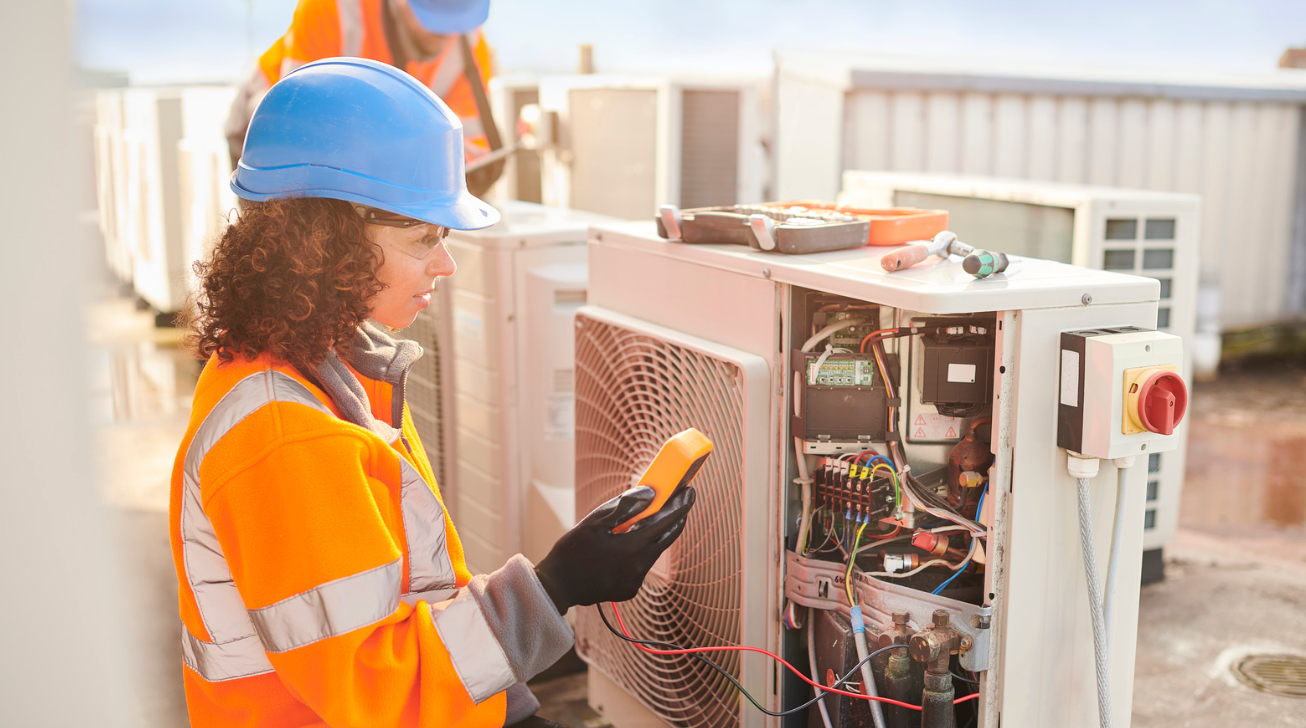
As the scorching summer heat arrives, keeping your home cool and comfortable becomes a priority. However, cranking up the air conditioner can lead to soaring energy bills. The good news is that you don't have to sacrifice comfort for savings. Your team at Paxos Electric CO, LLC will share some practical and easy-to-implement energy-efficient tips to help you beat the heat while reducing your energy consumption. Let's stay cool and save together this summer! 1. Optimize Your Thermostat One of the simplest ways to save energy during the summer is to optimize your thermostat settings. Set your thermostat to the highest comfortable temperature while you're at home, and raise it a few degrees when you're away or asleep. Programmable or smart thermostats can make this task even easier, allowing you to schedule temperature adjustments automatically throughout the day. 2. Utilize Ceiling Fans Ceiling fans are a cost-effective way to circulate air and create a cooling breeze in your home. They use significantly less energy than air conditioners and can make a room feel several degrees cooler. Remember to turn off ceiling fans when you leave the room, as the cooling effect is due to the breeze they create on your skin rather than lowering the room's temperature. 3. Keep the Sun Out Sunlight streaming into your home can significantly increase indoor temperatures. Use curtains, blinds, or shades to block out the sun during the hottest parts of the day. Focus on south and west-facing windows, as they receive the most direct sunlight. This simple step can help reduce the need for excessive air conditioning. 4. Seal Air Leaks Air leaks in your home can allow cool air to escape and let hot air seep in, forcing your air conditioner to work harder. Check for gaps around windows, doors, and any other openings. Use weatherstripping or caulking to seal these leaks and keep the cool air inside where it belongs. 5. Opt for Energy-Efficient Appliances If you're using older appliances, they might be contributing to higher energy consumption. Consider upgrading to energy-efficient models, especially for major appliances like refrigerators and air conditioners. Look for appliances with the ENERGY STAR label, as they meet strict energy efficiency guidelines set by the U.S. Environmental Protection Agency. 6. Mind Your Lighting Incandescent light bulbs can generate a significant amount of heat, contributing to indoor temperatures. Switch to LED or CFL bulbs, which produce less heat and consume far less energy. Additionally, remember to turn off lights when they are not needed, especially during daylight hours. 7. Choose Your Cooking Time Wisely Using the oven or stovetop on hot summer days can add extra warmth to your home. Opt for cooking during the cooler parts of the day, such as early morning or late evening. Consider using outdoor grills or microwave ovens, which produce less heat indoors. 8. Unplug Electronics Even when not in use, electronics and chargers can draw power and generate heat. Unplug chargers, gaming consoles, and other electronics when they are not actively being used. Consider using power strips that can be turned off when not in use to prevent energy wastage. With these energy-efficient tips in mind, you can keep your home cool and comfortable during the summer without breaking the bank on energy bills. Implementing these simple changes will not only help you save money but also contribute to a more sustainable and eco-friendly lifestyle. So, let's embrace the summer with smart energy choices and stay cool while we save! Reach out to our team today if you need an estimate for any of your indoor and outdoor electric projects.
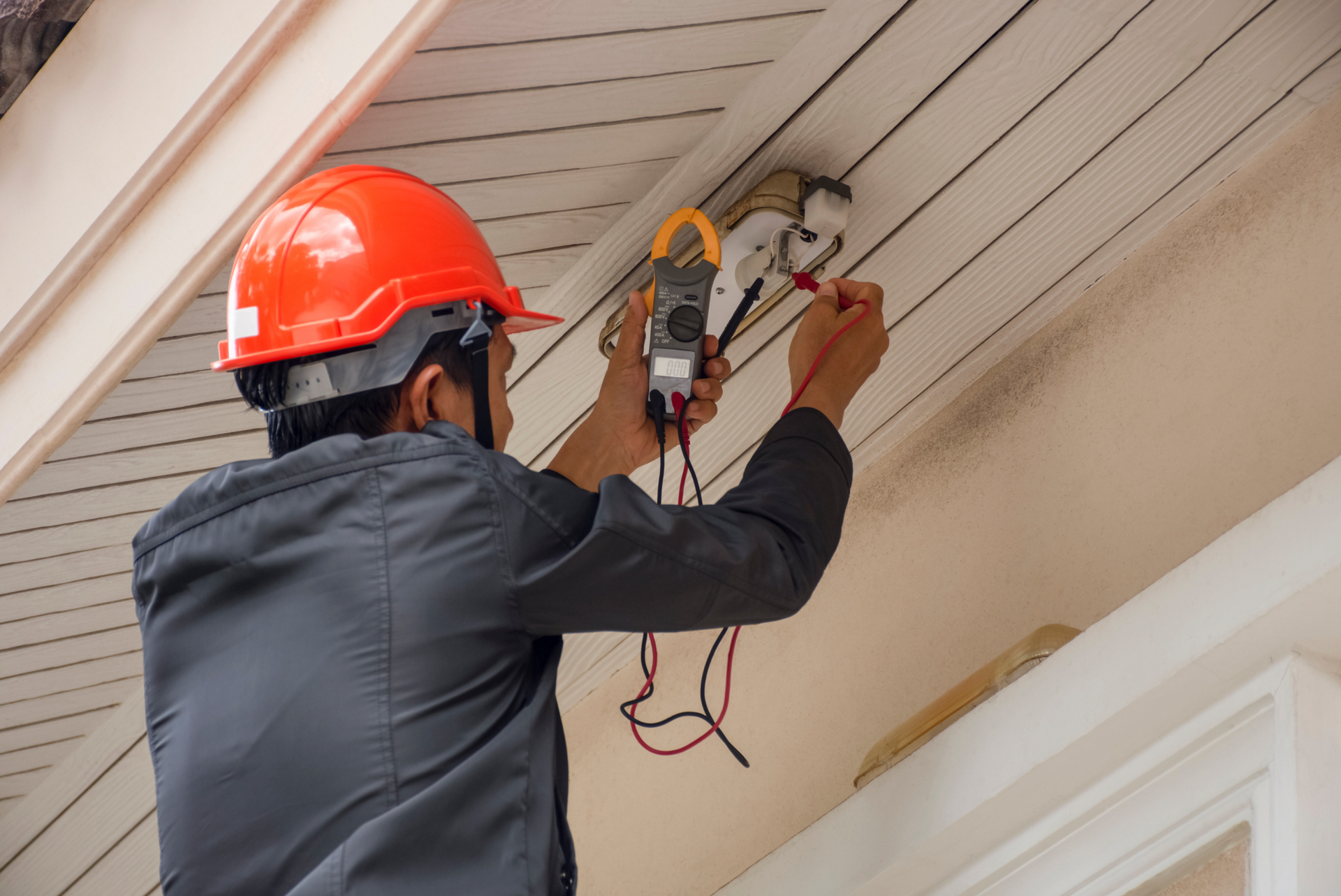
As the weather warms up and the days get longer, many homeowners start thinking about spring cleaning and home maintenance. However, one area that often gets overlooked is the electrical system. With more time spent outdoors and increased use of appliances and electronics, it's important to ensure that your home's electrical system is functioning safely and efficiently. Our team at Paxos Electric Company, LLC put together this comprehensive guide to spring electrical maintenance, including tips and tricks to help you prepare your home for the warmer months. First and foremost, it's crucial to check your smoke detectors. Spring is a great time to test them and replace batteries if needed. This simple step can be life-saving in the event of a fire. Next, inspect your outdoor electrical outlets and lighting. Look for any signs of wear and tear, such as cracks, frayed wires, or loose connections. Replace any damaged components to prevent electrical shocks, short circuits, or fires. Additionally, make sure that all outdoor lighting is working properly, as it can improve safety and security at night. Another important aspect of spring electrical maintenance is inspecting the electrical panel. Check for any signs of rust, corrosion, or damage. Make sure that all breakers are properly labeled and that there are no tripped breakers. If you're not comfortable working with electricity, it's best to hire a licensed electrician to perform this task. In addition to these specific tasks, there are other general electrical maintenance tips that can help keep your home safe and energy-efficient. For example, unplug any unused appliances and electronics to reduce energy consumption and prevent electrical hazards. Inspect extension cords for damage and replace them if necessary. And consider upgrading to energy-efficient lighting, such as LED bulbs, which can save you money on your electricity bill in the long run. Spring electrical maintenance is an essential part of home maintenance that should not be overlooked. By following these tips, you can help ensure that your home's electrical system is functioning safely and efficiently, and enjoy a comfortable and worry-free spring and summer season. If you have an electrical repairs , landscape lighting, or any other outdoor electrical projects you'd like to get completed this season, reach out to our team. Give us a call or send us a form and we can setup a time to meet for a free estimate.
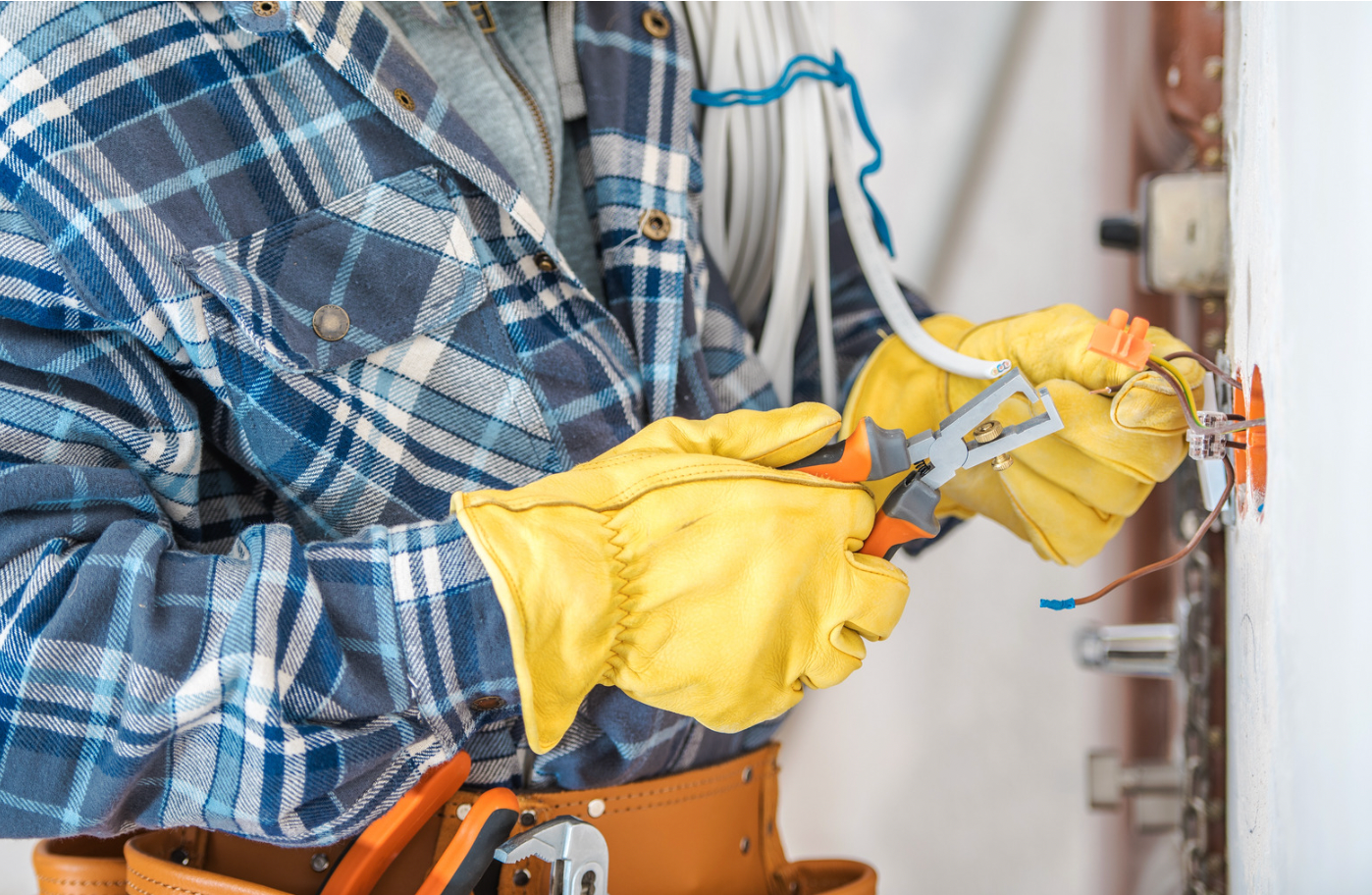
Electrical work in your home or business is a task that should always be left to a professional electrician. Hiring the right electrician is essential to ensure that the job is done safely and to a high standard. But with so many electricians out there, how do you know which one to hire? Our team at Paxos Electric Company. LLC put together the top 5 questions that you should ask before hiring an electrician. Are you licensed and insured? The first question you should ask an electrician is whether they are licensed and insured. A license proves that the electrician has the necessary training and qualifications to do the job, while insurance covers any damages or injuries that may occur during the job. Always ask to see their license and proof of insurance before hiring them. What kind of experience do you have? Another important question to ask an electrician is about their experience. Find out how long they have been working as an electrician and what kind of jobs they have worked on in the past. You want to hire someone with experience in the type of work you need to be done to ensure that the job is done correctly. What is your availability? Before hiring an electrician, you want to make sure that they are available to do the job when you need it done. Ask about their availability and schedule to make sure that it fits with yours. You don't want to be waiting around for days or weeks for the job to be completed. What is your pricing structure? You should always ask an electrician about their pricing structure before hiring them. Ask for a detailed quote that includes all costs and fees, so you know exactly what you'll be paying for. Make sure that the quote is comprehensive and includes any potential additional costs or fees that may arise during the job. Can you provide references? Finally, ask for references from past clients. A reputable electrician will be more than happy to provide references from satisfied customers. This will give you an idea of their work quality and reliability, and help you to make an informed decision about hiring them. In conclusion, hiring the right electrician is essential for any electrical work that needs to be done in your home or business. By asking these 5 questions, you can ensure that you hire an experienced, licensed, and insured electrician who is available to do the job when you need it, has a transparent pricing structure, and has a track record of providing high-quality work. Remember, taking the time to find the right electrician will save you time and money in the long run. You can rest assured that our team at Paxos Electric Company, LLC checks off every one of these boxes! If you have a questions about an upcoming electrical project at home or your business, don't hesitate to reach out for a free estimate! Give us a call or send us a message .
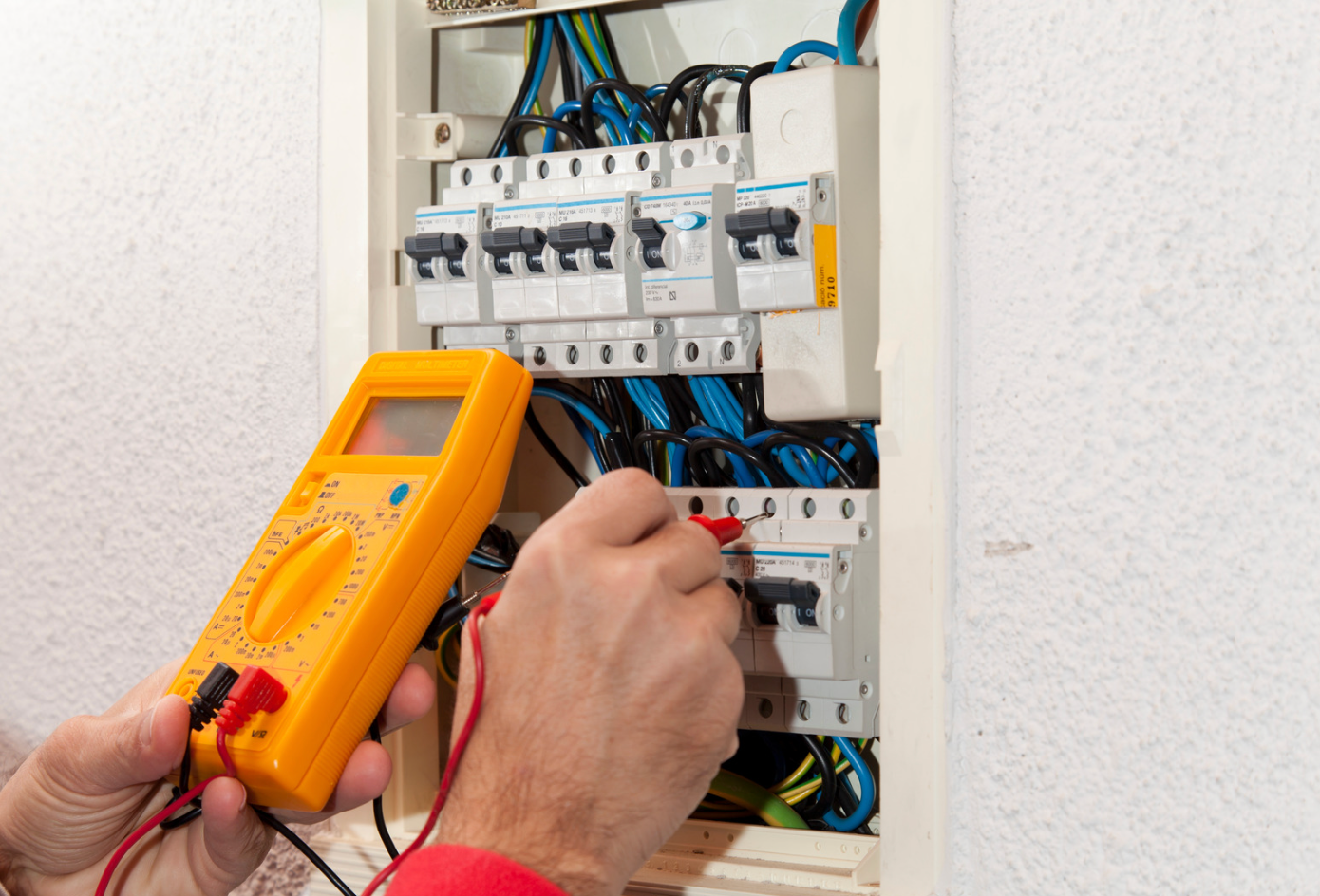
As the weather gets colder and winter sets in, it is important to make sure that you are prepared for the potential impact on your electricity usage. We want to share some helpful tips and information to help you manage your energy usage during the winter season. Heating and insulation One of the biggest energy users during the winter months is heating. To reduce your energy consumption, it is essential to ensure that your heating system is operating efficiently. You should schedule a maintenance check for your heating system before winter sets in to make sure it is in good condition. This will not only help your system run more efficiently but will also help you save money on your energy bills. You can also consider upgrading your home's insulation to reduce heat loss, which will also help lower your energy bills. You can add weatherstripping and caulking around doors and windows to keep the cold air out and the warm air in. You can also invest in double-paned windows and insulated doors to further increase your home's energy efficiency. Smart thermostat One of the best ways to manage your energy consumption during the winter months is by investing in a smart thermostat . A smart thermostat allows you to program your heating system to automatically turn on and off when you are away from home or asleep. You can also set your thermostat to lower the temperature when you are not home and increase the temperature when you are, saving you money on your energy bills. Additionally, many smart thermostats come with features that allow you to control your heating system from your smartphone or computer, so you can adjust the temperature remotely. This is particularly useful if you are away from home for an extended period and want to ensure that your home stays warm and comfortable. Energy-efficient appliances Another way to reduce your energy consumption during the winter months is by using energy-efficient appliances. Energy-efficient appliances use less electricity than traditional appliances, and as a result, can help you save money on your energy bills. If you are in the market for a new appliance, make sure to look for the Energy Star label. This label indicates that the appliance meets energy efficiency guidelines set by the U.S. Environmental Protection Agency. By choosing Energy Star certified appliances, you can save up to 30% on your energy bills. Energy-saving tips In addition to the above tips, there are other things you can do to reduce your energy consumption during the winter months: Turn off lights when you leave a room Unplug electronics and chargers when not in use Use LED light bulbs instead of incandescent bulbs Close curtains and blinds at night to keep the warm air in Use your oven or stove to heat your home Don't block heating vents with furniture or other objects Use a space heater instead of turning up the thermostat Outages and emergencies During the winter months, power outages are more common due to harsh weather conditions, fallen trees, and downed power lines. To prepare for a power outage, you should have a backup plan in place. This could include having a generator , extra blankets, and a supply of non-perishable food and water. If you experience a power outage, you should first check with your electric company to see if they are aware of the outage and if there is an estimated time for power restoration. If you have a generator, make sure to follow the manufacturer's instructions for use and never use it indoors. Keep in mind that downed power lines are dangerous and should be avoided at all costs. The winter months can be a challenging time for electricity usage, but by implementing energy-saving tips, investing in energy-efficient appliances, and preparing your home for outages, you can reduce your energy consumption and save money on your energy bills during the winter months. If you need help winterizing your home or have any additional questions on how to conserve electricity this winter, give Paxos Electric Company, LLC a call or send us a message .
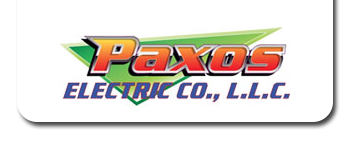
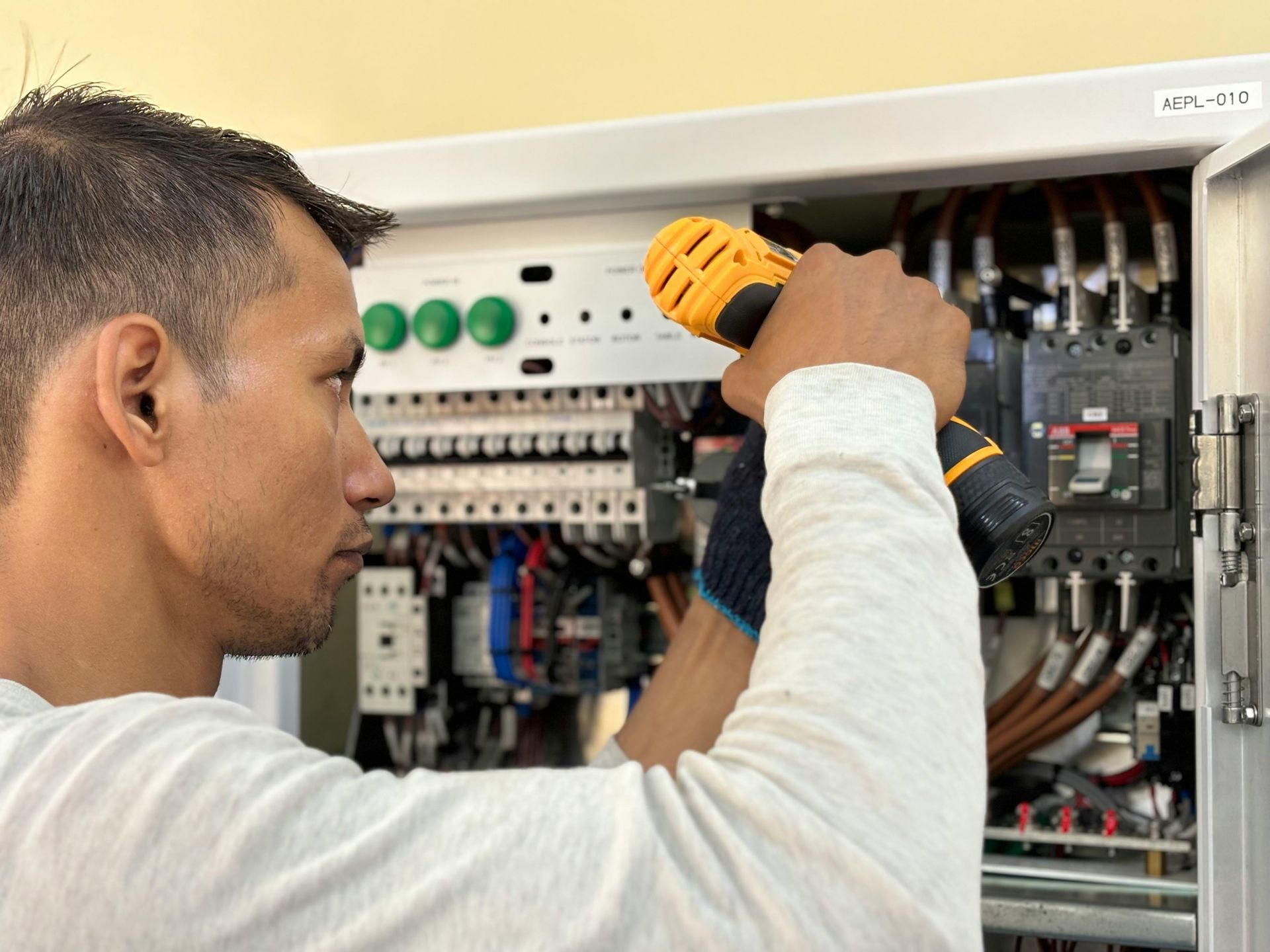

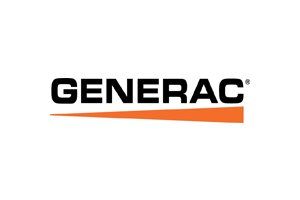




Share On: